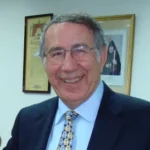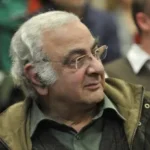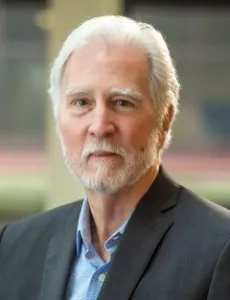

Harry Parsekian, a retired businessman and lifelong resident of Watertown, Massachusetts, is the founder of Friends of Hrant Dink and has been an active participant in Turkish/Armenian relations for more than a decade.
Parsekian’s travels around the world have included a climb to the top of Mount Ararat in 1986, a bike tour from Armenia to Nagorno-Karabakh in 2006, and a string of visits to Turkey, especially to the town of Kayseri where his father Sarkis was born before immigrating to the US in 1911. Parsekian is the editor of a book titled Armenians of Nirze, Turkey: Roots of an Armenian-American. His overall worldview and interest in human rights including the story of his ancestors was profiled in a short video by Neighborsinmemory.net (link to his video profile on NIM)
Executive Team

Gonca Sönmez-Poole has been a member of the Boston media community since 1983, producing stories for the Chronicle news magazine at Boston’s WCVB-TV until 2007. After more than a decade of full-time TV work, she branched out into international affairs through her studies at the Fletcher School of Law & Diplomacy at Tufts University. Since 2006, Sönmez-Poole has been involved with the Turkish and Armenian communities in and around Boston, and has been writing about the subject of the Armenian Genocide. Sönmez-Poole is the founder of TAWA (The Turkish-Armenian Women’s Alliance), a grassroots alliance of women who met regularly between 2012 and 2014 for the purpose of dialogue and common purpose. Her most recent effort is the founding of the website www.neighborsinmemory.net and the production of a series of video profiles related to the legacy of the Armenian Genocide. Sönmez-Poole holds a BA in mass communication from Emerson College, an MS in broadcasting and film from Boston University and a mid-career MA from the Fletcher School of Law & Diplomacy, where she studied international human rights, minorities and methods in mediation and conflict resolution.

Gerard J. Libaridian is a retired historian and diplomat. He has taught and written on Armenian history and authored numerous books, articles and reports on contemporary Armenian, South Caucasus, and Middle Eastern affairs.
Libaridian was a co-founder of the Zoryan Institute for Contemporary Armenian Research and Documentation (Cambridge, Massachusetts,1982) and served as its Director until 1990. During that period, he also was editor of the Armenian Review (1983-1988).
From 1991 to1997, Dr. Libaridian served as senior advisor to the first President of Armenia, First Deputy Minister of Foreign Affairs, and Secretary of the National Security Council.
He has taught and lectured extensively in institutions of higher learning in the US and internationally. Before his retirement in 2012 he held the Alex Manoogian Chair in Modern Armenian History at the University of Michigan, Ann Arbor.
Libaridian is currently working on a number of projects. His most recent books in English are A Precarious Armenia. The Third Republic, the Karabakh Conflict, and Genocide Politics (London, 2023) and Liberation and Revolution. Critical Essays in Modern Armenian History (London, 2024).

Hurst Hannum, Professor Emeritus of International Law, has taught courses on international human rights law, minority rights, public international law, international organizations, and nationalism and ethnicity.
His scholarly work has been complemented by service as consultant/advisor to a number of intergovernmental and nongovernmental organizations, including the U.N. High Commissioner for Human Rights and Department of Political Affairs. He has been counsel in complaints before European, Inter-American, and U.N. human rights bodies. He serves on editorial advisory boards of Human Rights Law Review and Human Rights Quarterly.
Professor Hannum is the author or editor of numerous books and articles on international law and human rights, including “International Human Rights: Problems of Law, Policy, and Process,” “Negotiating Self-Determination,” “Guide to International Human Rights Practice,” and “Autonomy, Sovereignty, and Self-Determination: The Accommodation of Conflicting Rights.” His most recent book, “Rescuing Human Rights: A Radically Moderate Approach,” was published by Cambridge University Press in 2019.
Additional Board Members

Historian Taner Akcam is the inaugural director of Armenian Genocide Research Program at Promise Institute at UCLA. Before coming to UCLA Akçam held the Kaloosdian and Mugar Endowed Chair of Armenian Genocide Studies at Clark University.
Akcam grew up in Turkey, where he was imprisoned for editing a political youth journal and was subsequently adopted as a prisoner of conscience by Amnesty International in 1976. Akcam later received political asylum in Germany. In 1988 Akçam started working as a Research Scientist at the Hamburg Institute for Social Research. In 1996 he received his doctorate from the University of Hanover with a dissertation on The Turkish National Movement and the Armenian Genocide Against the Background of the Military Tribunals in Istanbul Between 1919 and 1922.
Akçam is widely recognized as one of the first Turkish scholars to write extensively on the Ottoman-Turkish Genocide of the Armenians in the early 20th century. He is the author of more than ten scholarly works as well as numerous articles in Turkish, German, and English on Armenian Genocide and Turkish Nationalism.
His most known books are A Shameful Act: The Armenian Genocide and the Question of Turkish Responsibility (Metropolitan Books, 2006) and “Young Turks’ Crime Against Humanity: The Armenian Genocide and Ethnic Cleansing in the Ottoman Empire, Princeton University Press, 2012. Akçam’s latest book is “Killing Orders: Talat Pasha’s Telegrams and the Armenian Genocide (Palgrave 2018) Because of the findings in this book Akçam was introduced by the New York Times as “Sherlock Holmes of the Armenian Genocide” (https://www.nytimes.com/2017/04/22/world/europe/armenian-genocide-turkey.html) Akçam is also the founder of Krikor Guerguerian Online Archive: https://wordpress.clarku.edu/guerguerianarchive/